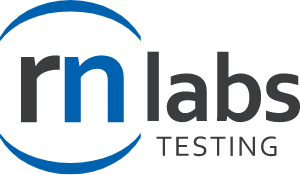Detailed Test Information

The Human Genome Project has confirmed significant variability in an individual’s potential for success in different sports and the associated training responses attained from specific exercise regimes.
Variation in genotypes, as expressed through DNA, has been estimated to account for 66 % of athletic success.
Despite the strength of genetic research data and the obvious notion that we are all different, most exercise programmes follow a similar formula: aerobic training for cardiovascular health and weight loss and weight training for muscle strength and weight gain. However, we now have enough scientific understanding to realise that in order to attain the most successful target training outcomes, the ratio between the power training and aerobic exercise that constitutes a training programme should vary widely between individuals. This notion applies even between different individuals seeking the same goal metric, such as fat-loss or muscle gain.
DNA Sport provides insight into:
DNA Sport assesses an individual’s genetic predisposition to different forms of training (endurance or power) and recovery. This report describes how these genetic variants interact with exercise, diet and environmental factors to influence an individual’s tendency towards endurance or power-based exercise, speed of recovery and injury susceptibility.

Exercise Training and Sporting Performance Genes
The DNA Sport profile tests genes that relate to three different categories of sporting performance:
The Power and Endurance section tests genes that code for physiological factors such as circulation, blood pressure control, strength, cardio-pulmonary capacity, mitochondrial synthesis, muscle fibre type specialisation, muscle fibre hypertrophy, cardiac output, muscle metabolism and adaptability to training regimes.
The Tendon Pathology section examines genes that are involved in the structural integrity of soft tissues in the body. Certain polymorphisms implicate predisposition to tendon injuries (including Achilles Tendonitis), plus ligament, cartilage and bone pathology.
The Recovery genes are the best example within this genetic panel of the need to integrate training and nutritional advice when supporting an athlete’s health and fitness. The featured genes consider disposition to inflammation and free radical stress within the body, which may imply the need for more focussed nutritional support, along with extended recoveries between training repetitions and sessions
In this 20 minute introduction to DNA testing, Dr Daniel Meyersfeld presents why genetic testing and nutrigenomics are the future of individualised healthcare and how to translate DNA test results into practical nutritional and lifestyle solutions.
For up-to-date prices on all tests and to authorise, please see the Practitioner Hub.
DNALife comprises a dedicated team of scientists with expertise in Human Genetics, Molecular Biology, Nutritional Genomics and Dietetics. By placing emphasis on the inter-relationship between genes, nutrition and lifestyle, genetic tests provide a valuable tool for the management of health and wellness. The use of cutting-edge molecular technologies provides high-quality testing, performed according to the highest international standards.
Equipped with the most up-to-date DNA tests, DNALife is dedicated to providing healthcare practitioners with training and education to accurately and usefully interpret genetic results.

It is important to be informed as to where tests are being conducted as well as the technology used, so that you can be confident that your patients are performing evidence-based tests. RN Labs has always insisted in choosing laboratories that are of the highest standard globally with evidence-based functional tests, thereby improving patient outcomes and supporting the industry as a whole. RN Labs believes in maintaining full transparency of who and where your test is being carried out, so that you can make fully informed decisions with your patients.
We work with healthcare practitioners to bring their patient’s personalised care that’s unique to them.
We believe that every one of us is an individual when it comes to our health.
RN Labs Pty Ltd
18/93 Rivergate Place,
Murarrie, QLD 4172

Jess is a qualified Nutritionist with a Bachelor of Health Science in Nutritional Medicine. She believes that there is no one size fits all approach and is passionate about educating, inspiring and supporting clients and practitioners with a customised approach to healthcare. Specialties include preconception, pregnancy, post-natal and infant care.
Jess is excited to build relationships, educate and share her knowledge with both retail and practitioners in South Queensland and Northern NSW.

Lauren is an NHAA accredited Clinical Naturopath with a Bachelor of Health Science. She is incredibly passionate about natural health and educating clients on the foundational importance of nutrition, lifestyle and stress management and believes complimenting these building blocks with nutraceutical support and functional testing often holds the key to optimal health and vitality. Lauren looks forward to supporting practitioners and clients in these key areas.
Specialties include supporting thyroid health, digestive disorders and mental health.